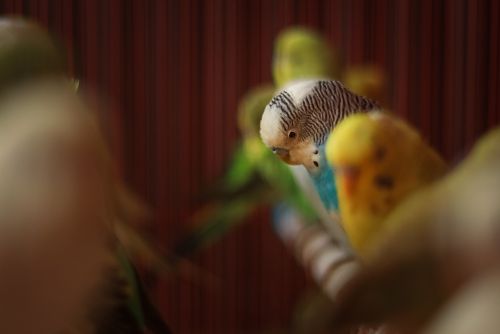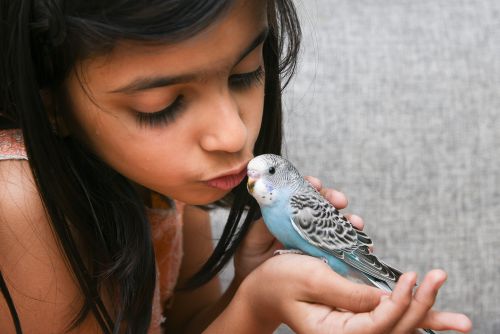The paradox between the rising number of bought and abandoned pet birds is only intensifying. The result? Broken hearts. First time pet parents, here's a guide on how to spare the pain.
Picture this:
You are casually scrolling through your Instagram feed and this video of a parrot beautifully mimicking its owner catches your fancy and you can’t get over how amazing would it be to have a pet in the form of such an entertaining companion. Now picture 100 more with the exact thought as yours. The likelihood of at least some actually buying that pet is massive. And there you have it another hasty, internet-driven mishap with absolutely no calculated risk whatsoever. While your routine casual Instagram browsing is the catalyst here, there are multiple internet and non-internet factors that have led to birds being one of the most “bought” pets — parrots especially — across the globe.

Startlingly, statistics also suggest that these same pets are also the ones to be some of the most “discarded, abandoned, and homeless”. The paradox is quite a hard-hitting one, but not too hard to decipher. Let’s take a look at some leading factors that have broken countless little birds' hearts across the globe. Take a cue if you are a bird parent or planning to be one!
1. Ask Questions
The very first step of you actually buying a pet bird — at the pet shop — leaves you with enough scope to ask questions. Unfortunately, several marketing campaigns have gone wrong in creating the impression of what it actually is to own a pet parrot. The reality is far from what’s marketed and you’ll know only when you ask questions.
2. Be Ready to Take Care
Parrots are exotic pets — another contributing factor in their popularity as pets. If it helps, Google the term “Exotic Pets” to understand what exactly it is. Wikipedia states these pets to be an animal kept within human households which is relatively unusual to keep or is generally thought of as a wild species rather than as a pet. So take a check on whether you have all the resources, space, time and money that an exotic pet demands.
3. Reality Check
This one’s especially important if you are being led to buy a pet bird by the internet. You may have seen compelling and heartwarming content that depicts how fun and interesting these pets are to have — the conversations between a talking parrot and owners can be especially fascinating. Talking to someone who owns pet birds, in person, can help you decide better.
4. Do Your Research
How long can you afford to keep an exotic pet is perhaps the question in point here. Parrots can have lifespans comparable to humans. That’s right! 20 to 85 years is the range of a parrot’s life span. Any miscalculation on your end can cause the pet bird the tragedy and complexity of several emotional conditions — the multiple home syndrome being one of the biggest.

5. Understand the Species
Once you know what to practically expect and are over any sort of internet fascination, take some time to understand the species of the pet bird you are planning to buy. For example, parrots are inherently wild. Unlike pet dogs and cats, parrots were never domesticated. The lack of understanding this has caused a severe gap in communication between pet parrots and their owners snowballing into adverse situations of aggression, isolation and finally discarding.
6. Understand the Species Some More
No, this is not a redundant point, but a point that goes beyond understanding the subset your pet bird belongs to: wild or domesticated. Most exotic pet birds are inherently wild, so when confined to domestication they can get naturally destructive, messy, and noisy. Noise, especially, needs to be a very important point to consider. Exotic birds, like parrots, have loud calls because they are biologically designed to be heard miles away — imagine forests. After that, dedicate sufficient time in understanding their dietary and social behaviours as well.
7. Assess Your Temperament
Given the previous point, assess your temperament as well as of those you live with. The calls, cage biting, and food mess among others can overwhelm many. This often leads to pet owners isolating their pet birds in spaces of their homes away from the main living areas — garages, basements, and even closets in the worst cases. Bear in mind that this can cause grave damage to your pet bird — mentally, emotionally, and physically.
8. Patience
Last but not least, the good old’ virtue of patience. The Internet farce can have you teach your pet bird a new trick, perhaps a new language as well. And it’s alright to be excited about watching your pet do something. However, remember that no two pet birds are the same. Your pet bird may pick up the trick sooner or later, or maybe never, and that’s all that’s there to this. Avoid aggressively teaching something to your pet. If you must, patience is the key.
Like for every pet, pet birds, too, come with their share of responsibility — more so if they are exotic. While it’s sad that there are very few resources you can seek honest information from, reach out to rescue organisations and bird shelters along with doing your own research. Even pet stores may not provide you with all the facts you ought to know prior to purchase. At the end of it all, remember every pet bird has a heart — a heart you don’t want to break!